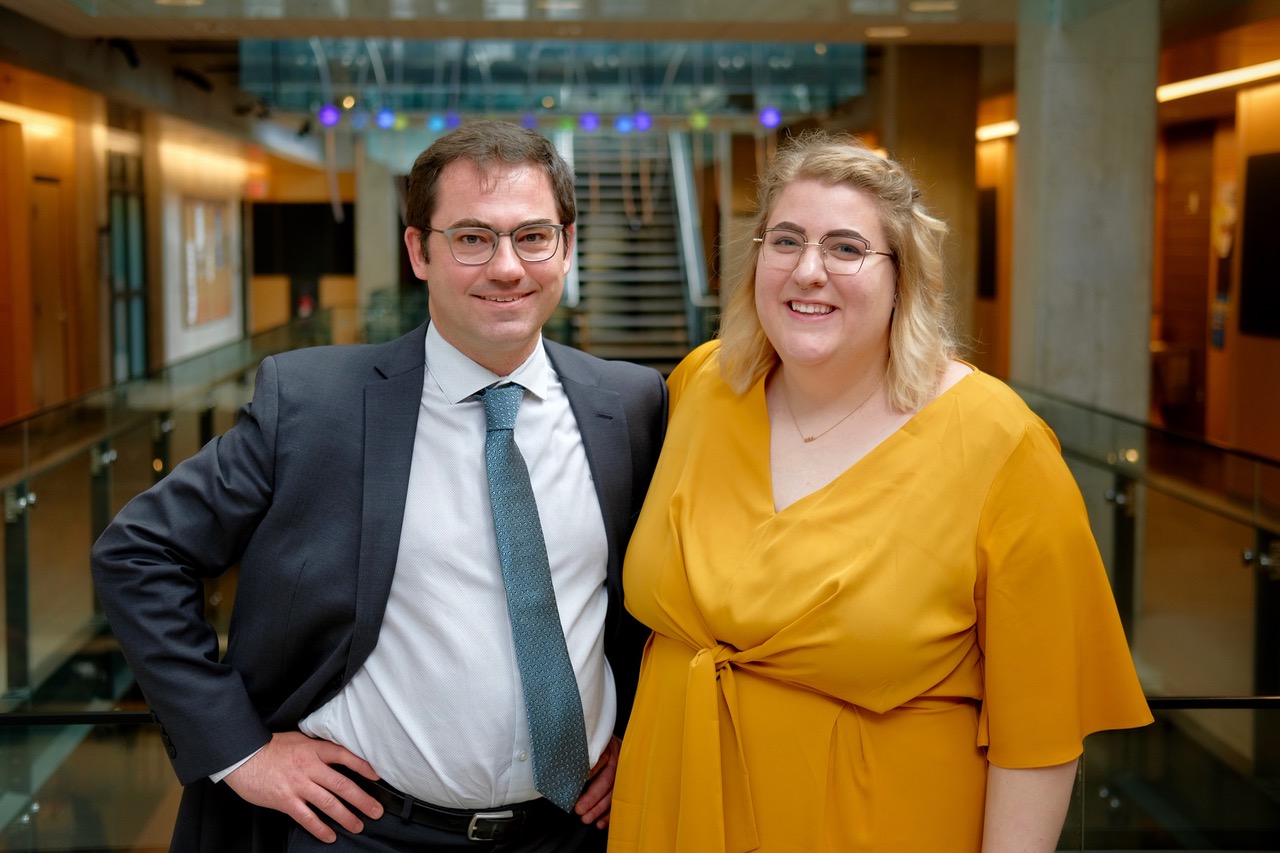Genome Atlantic helps Atlantic Canada companies, industries and government use genomic insights and innovations to solve real-world problems.
Genomics is a powerful biotechnology that provides insights into the DNA of all living things. Genomics is improving production and sustainability in forestry and agriculture, driving innovations in aquaculture and energy, and offering cleantech solutions for mining. DNA-based tools are helping industries adapt to climate change and offer effective ways to monitor biodiversity. Genomics is leading to new treatments for people with genetic diseases and helps track variants of viruses like Covid-19.
Genome Atlantic is the go-to organization for genomic innovations in Atlantic Canada. We work with private sector and public sector partners across the region, enabling bottom-line benefits, sustainable growth and improved health outcomes, with many projects employing scalable technology to address strategic provincial and regional needs.
Our Impacts

Client Driven
Project Funding
$150 000 000
30%
Private sector investment as a proportion of our portfolio
Recent News and Updates
What Our Clients Say?
“Access to genomic technology and the opportunity to work with Genome Atlantic are crucial to the success of our program which has long term implication for both our company and the developing oyster industry.”
Dr. Martin Mallet
R&D Director, L'Etang Ruisseau Bar, Shippagan, N.B.
It's quite a privilege to still make a living in rural Nova Scotia and to be part of the Christmas celebration, so, if you can plant some seedlings that can return you 80-90% premium trees instead of 10% premium trees, that's a big return on investment.
Jim DeLong
Featured Projects
Funding Amount: $975,000
Funding Amount: $7,800,000
Funding Amount: $6,500,000
Funding Amount: $6,200,000
Funding Amount: $3,600,000
Sign up for our free newsletter.
We will deliver SEQUENCE to your inbox. SEQUENCE highlights the latest genomics applications and research initiatives in Atlantic Canada. Subscribe to stay informed.
Sign up for our free newsletter.
We will deliver SEQUENCE to your inbox. SEQUENCE highlights the latest genomics applications and research initiatives in Atlantic Canada. Subscribe to stay informed.
Featured Videos
Genomics and Sustainability (full length)
Genomics is a green technology that is helping companies and industries to grow sustainably. Watch how Genome Atlantic is working with Atlantic Canadians in many sectors to strengthen their industries and shape a better future.
Cultiver de meilleurs arbres avec la génomique – FastTRAC II (Court)
Les changements climatiques menacent l’industrie forestière canadienne. Un partenariat de 6,2 millions de dollars impliquant trois provinces vise à développer un programme de sélection d’épinettes commerciales résistantes au climat.
Breeding better trees with genomics – FastTRAC II (Short)
Climate change threatens Canada’s forestry industry. A $6.2 million partnership involving three provinces aims to develop a breeding program for climate-resilient commercial spruce.
Sélection de meilleurs arbres avec la génomique – FastTRAC II
Les changements climatiques menacent l’industrie forestière canadienne. Un partenariat de 6,2 millions de dollars impliquant trois provinces vise à développer un programme de sélection d’épinettes commerciales résistantes au climat.
Breeding better trees with genomics – FastTRAC II
Climate change threatens Canada’s forestry industry. A $6.2 million partnership involving three provinces aims to develop a breeding program for climate-resilient commercial spruce.
Sampling the Sea: environmental DNA supports our Blue Economy
An emerging technology called environmental DNA is proving a valuable tool for Atlantic Canada’s ocean economy.








































































